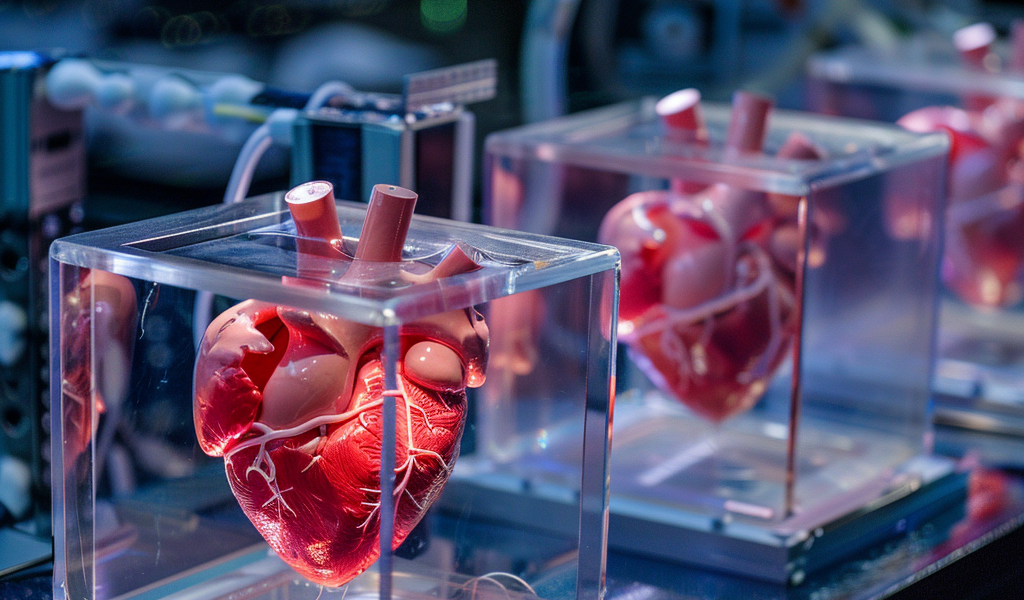Impact of Low Gravity on Heart Muscle Cells: A Groundbreaking Study from Johns Hopkins Medicine
In a significant advancement in space medicine, researchers at Johns Hopkins Medicine have unveiled the effects of low-gravity conditions on human heart muscle cells. The study involved the exposure of 48 bioengineered heart tissue samples to the unique environment of the International Space Station (ISS) for a duration of 30 days. The findings indicate that the low-gravity environment adversely affects the tissues, leading to a notable decrease in their strength and rhythmicity compared to samples cultivated on Earth.
The heart tissues exposed to the conditions aboard the ISS exhibited a contraction strength that was approximately half that of their Earth-based counterparts. This alarming discovery has implications for understanding the health and survival of astronauts during extended space missions, as well as for advancing research into heart muscle aging and therapeutic approaches on Earth.
Previous investigations have revealed that astronauts returning from space often face age-related health issues, including diminished heart muscle function and arrhythmias, which are irregular heartbeats. While some of these effects seem to diminish over time post-return, the need for a deeper understanding of the cellular and molecular impacts of space travel has become increasingly critical. The study led by Professor Deok-Ho Kim aims to address these concerns by exploring the effects of microgravity on cardiac tissues.
To create the heart tissue samples for this unique experiment, Dr. Jonathan Tsui utilized human induced pluripotent stem cells (iPSCs) to differentiate into heart muscle cells, known as cardiomyocytes. These tissues were then placed within a specialized bioengineered tissue chip designed to replicate the conditions of an adult human heart. The chip, which is about the size of a mobile phone, housed the cells in a 3D environment that facilitated accurate data collection regarding their contraction patterns.
Transporting the cardiac samples to the ISS was no small feat. Dr. Tsui personally hand-carried the tissue chambers to Florida for the SpaceX CRS-20 mission, which launched in March 2020. After a month of careful management at the Kennedy Space Center, the samples were successfully sent to the ISS. Once in space, the research team received real-time data every 30 minutes, monitoring the strength of contraction, referred to as twitch forces, and any irregular beating patterns exhibited by the cells.
Astronaut Dr. Jessica Meir played a crucial role in the experiment by changing the nutrient solution surrounding the tissues weekly and preserving samples for further analysis upon their return to Earth. For comparative purposes, a set of cardiac tissues developed under identical conditions remained on Earth, housed in similar tissue chambers.
Upon the return of the tissue chambers from space, Dr. Tsui continued the analysis to assess the changes that occurred during the month in microgravity. The research findings, published in the Proceedings of the National Academy of Sciences, provide critical insights into how low-gravity environments can disrupt normal cardiac functions.
This research not only sheds light on the physiological challenges faced by astronauts but also opens avenues for studying heart health on Earth. Understanding the mechanisms underlying the weakening of heart tissues in space could lead to innovative strategies for combating heart disease and age-related cardiac dysfunction.
As space exploration continues to advance, the implications of this study are profound. It emphasizes the importance of investigating the long-term health effects of space travel on the human body, particularly the cardiovascular system. The findings underscore the necessity of developing countermeasures to protect astronauts’ health during prolonged missions, such as those planned for Mars and beyond.
In conclusion, the research conducted by Johns Hopkins Medicine represents a pivotal step in understanding the impact of microgravity on human health. As scientists continue to explore the complexities of life in space, studies like this will play a crucial role in ensuring the safety and well-being of astronauts as they venture into the unknown.





